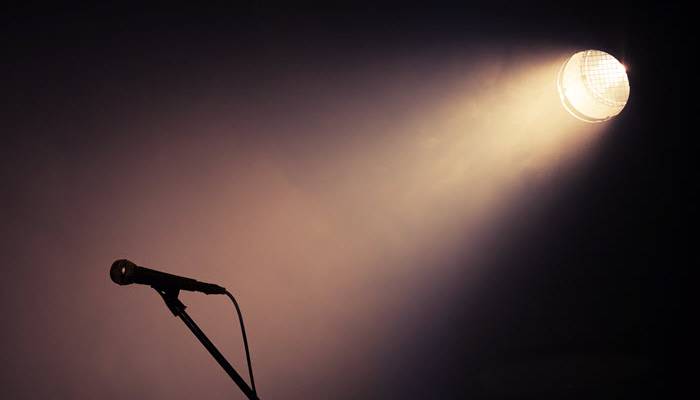
Never have I had so much money riding on an election. Not that I bet on it. I honestly thought to myself: if Bill Shorten wins this, I could make money making art. Or at least find financial stability. There will be grants, there will be jobs, there will be an ABC. I could hear the gold jingling in my coin purse.
Instead, I now hear the aria of another government-funded Wagnerian opera, and the auto-aiming lasers of robo-debt. I am desperately trying to learn Marc Anthony’s lines in Tina Arena’s “I Want to Spend My Lifetime Loving You”. Failing that, I’m on the next steamer out of here.
“Brain drain” is a term that gets bandied about a lot in Australia, but perhaps nowhere more than my home state of Western Australia. During the mining boom, Perth became all but unaffordable for working artists. Every second writer, musician, painter, actor and mime moved to Melbourne at some point in their fledgling careers. Brunswick became a bevy of Perth expats trying to save enough money selling zines to move to Berlin.
Perth works as a neat microcosm for the impossibilities of working in the arts in Australia. There is little in the way of a “ladder” in Perth. Progressing in an “arts career” is more akin to hopping between moss-covered stepping stones while a man comes and removes the next just as you make your next jump.
That lack of infrastructure and “verticality” is what sent many sandgropers to Melbourne, where the city and state’s generous arts funding means there is no lack of festivals, panels, bodies, and grants to subsist on. But even that has its limits, and many Aussie artists that want to make that great leap from “emerging” to “emerged” find themselves tying their bindle and thumbing it to foreign shores.
Six years of Coalition management has lent a spicy air of uncertainty to the very idea of government arts funding.
Under George Brandis, the Australia Council had a pretty $104 million taken from its coffers to create Brandis’ two-bit slush fund the National Program for Excellence in the Arts. Although the course of Brandis’ actions was somewhat corrected by Turnbull, the incident stood as both an example and warning to the arts community as to who holds the purse strings.
Opera, ballet, musical theatre and the other amusements of the landed gentry seem to be the key beneficiaries of this system. The Australia Council has come to reflect the Coalition’s tastes: Scott Morrison’s “favourite singer” Tina Arena was just appointed to the board. Nothing against Tina, but it is worth considering why arts funding under a Coalition government is so small-c conservative when it comes to the projects that receive its blessing.
To understand why this is, we don’t have to look much further than the ABC.
A lot is (rightly) made of the death of thorough and independent journalism on Aunty in the last six years. There is a sense that the national broadcaster is no longer able to hold the government, or its mates in the private sector, to account.
What is true for journalism is also true for art. Aunty has always been the biggest and best platform for radical artistic ideas in Australia, to the Coalition’s long-held chagrin.
The ABC offers an education in a bevy of artistic thought. For someone like me, unable to access a lot of the ideas and culture it presents, it is a vital cornerstone of self-education.
When it isn’t introducing you to Patrick White or Patricia Piccinini, the ABC is giving new artists a platform. It’s giving us work. For comedians and writers like me, it remains a vital life source. But the more cuts it receives, the greater that leap between your stepping stone and the shore becomes. This is especially true for artists not based in Sydney or Melbourne, or from unprivileged or diverse backgrounds.
What we see from the cuts to the ABC is an ABC that cannot afford risk. And you cannot make worthwhile art without taking some big risks. What results when artists cannot afford to take risks is risk-free art. This is art that serves nothing but the status-quo and does little to inspire new art in turn. Your Squinters, as opposed to your Katering Show.
The government, naturally, prefers such art. And when artists can’t survive in a place making the art they want to make, they leave for a place where they can.
Where do you see the arts going under a Morrison government? Send your comments to boss@crikey.com.au. Please include your full name.








The attitude of the current generation of conservatives towards the arts is even more depressing when historically the Liberals were supporters of (non-radical) arts. The Australian Council for the Arts (precursor of the Australia Council) was planned under Holt, and came into being under Gorton – who was also responsible for founding AFTRS.
It was Menzies who initiated the Lindsay report which became the blueprint for the National Gallery of Australia, and Menzies (for all his conservative biases) who supported the growth of the ABC, as well as
Australian literature.
We really have fallen on hard times
For better or worse, one comment in four days says plenty.